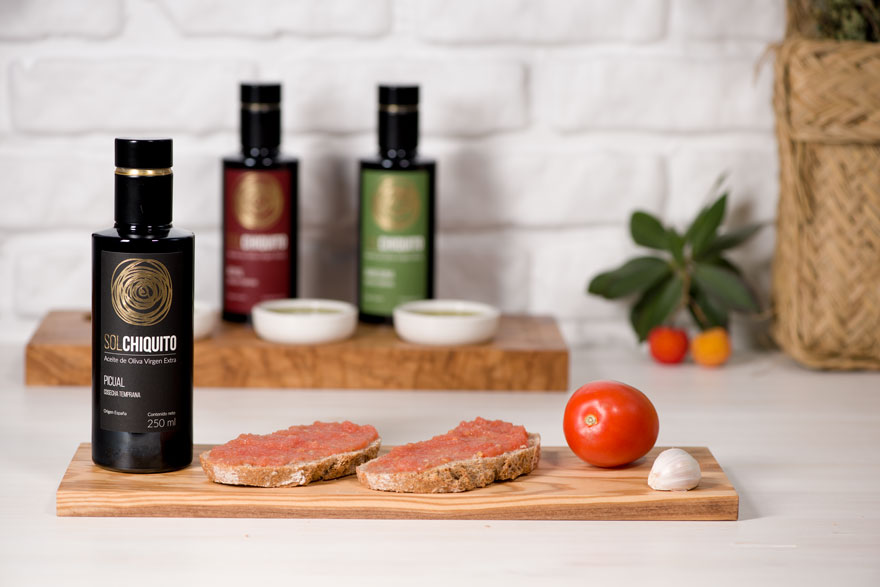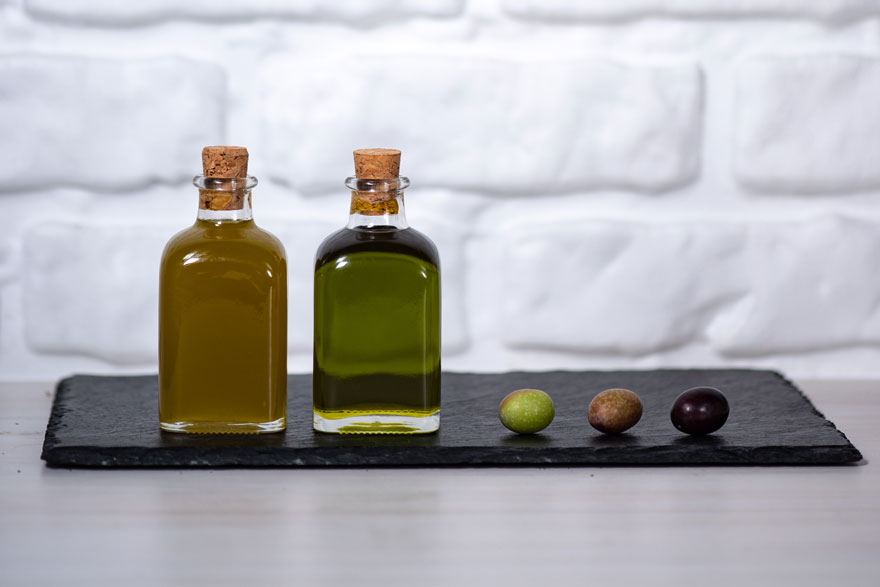


Facing towards the foreign market
10 February, 2021


How to make a healthy toast
10 February, 2021Filtered or unfiltered?


A tablespoon of olive oil on an empty stomach for constipation
One of the recurring questions that the extra virgin olive oil consumers ask us is if it is better the oil filtered or unfiltered this last one called as well as “branch oil”. We will try to give an answer to this doubt as far as objectively posible base don our experience and the one of other profesional peers of the sector.
HUMIDITY AND IMPURITIES
In order to understand why the oils are filtered or not, it will be convinient to start from the definition of an extra virgin olive oil: “higher quality olive oil obtained directly from the olives by means of mechanised methods”. Although it seems a truism, the EVOO its defined as oil and during the extraction process in the mills this oil presents as well remains of pulp, pit and water due to both the own olive and the added by the process. This is what it is known as humidity and impurities.
Once inthe oil cellar, the oil’s humidity and impurities due to its higher density and beacuse of the gravity effect shifts among to the bottom of the tank. This is what is known as decantation. This process is as fast as higher is the temperature of the oil because the viscosity falls as the temperatura grows. For this reason the cellar of the actual mills have termal insulation systems and heaters in order to keep a certain range of temperatura which facilitates the decantation process.
¿And why it is intended to reduce the humidity and impurities of the oil saved? There are many the reasons that we will see along this article, but we will start by a regulatory reason. The comercial standard that applies to the olive oils and the olive pomace oil COI/T.15/NC N°3/Rev.13 sets the next upper limits for the different comercial categories of the oil:
| Parámetro | Extra virgin olive oil | Virgin olive oil | Lampante virgin olive oil |
| Water and volatile content (% m/m) | ≤ 0,2 | ≤ 0,2 | ≤ 0,3 |
| Content of insoluble impurities in light petroleum (% m/m) | ≤ 0,1 | ≤ 0,1 | ≤ 0,2 |
It can be observed that a higher humidity (>0,2%) and impurities (>0,1%) content can assume that an virgin olive oil enters into the category of lampante. Overcome these limits generates an economic loss for the mills as the prevailing price of a lamapante virgin olive oil is lower tan the one of a virgin olive oil or an extra virgin. So the regulation associates a high humidity and impurities to a lower quality. Lets see the explanation of this.
THE MUDDY DEFECT
In the olive oil tasting panels the posstive and negative virgin olive oil attributes are sensory analysed and quantitatively valued in order to carry out its organoleptic clasification. Among the negative attributes that an oil can presents is the defect known as muddy. This defect is produced in the oils as a result of the anaerobic fermentation that takes place at the bottom of the deposits where it is accumulated by decantation the pulp and awater remains in the stored oils. Unlike the oil, that in an abiotic environment – this explains why it has been tradionally used to preserve the food as it avoids the microorganisms development-, the deposits that accumulate at the bottom allow the microorganisms that cause fermentations, in this case anaerobics due to the fact that they are produced in an environment devoid of oxigen. As a resulto f these fermentation it is produced abnormal scent that transfer to the oil and speed its oxidative processes. This, that happens on a large scale in the cellar deposits, happens on a small scale in an unfiltered virgin olive oil bottle. Because of this the same EVOO will mantain better if it is filtered.
THE FILTERED PROCESS
In the factory body of an actual mill the olive is grinded, the resulting paste is mixed and afterwards it is spinned to separate the oilfrom the rest of de fruit components. It is obtained an oil with many olive and added water residues that usually is spinned again to reduce the humidity and impurities. After this it is sended to the deposit where by simple gravity will be decanting the not oily small particles that remain suspended. This process will be faster and more effective as higher the oil temperature is becuse when the viscosity reduces the sedimentation rate increseases. It is a good practice top urge the deposits to clear the sediments an by this avoid the fermentations, but this deposits usually have big dimensions and lack a conic bottom with enough slope for the purge to be effective.
Onced the oil has decanted in the cellar is convenient to proceed to its filtered so as soon as it is done, the better the caracteristics of the oil will be preserved. This filtered is usually done with materials such as cellulose and the diatomaceous earth which achieve to reduce to minimum levels the humidity and impurities, leaving the oil bright and trasnparent, ready to bottle in conditions where the fermentation processes are avoid and the life of a good oil extends.
WHAT DO WE LOSE AND GAIN WITH THE FILTERED?
It is true that with an oil’s filtered is initially lost intensity in the aromas of itself and the content in polyphenols reduces as this as in more or less extent, watersoluble – with the water we eliminated part of the polyphenols leaves-. However the EVOO filtered evolution will be better with time and his fruity intensity and content in polyphenols will be preserved better.
YOU CHOOSE
Our bet for the filtered extra viginiolive oil is not clear. However if you like the unfiltered oils we revommend you to consume them during the first weeks from the elaboration in order to make use this period of time where its properties are preserved. After a defined time since the olive was extracted we recommend your election to be a filtered oil.
But what we are always going to advise against you, on any date, is the use of an unfiltered oil to fry as the impurities of the own oil gives, in the different frying cicles, will burn and will facilitate the harmful substances appearance. Here there is no discusión. In the pan or the frier always use filtered oil.
Leave us your comments and share if you liked it.



